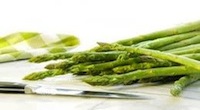We have covered the topic of vitamin B12 in detail. Now let’s look at folic acid or vitamin B9, abundant in plant foods, and more particularly in everything that is “green” such as broccoli, parsley, tarragon, avocados and green beans especially. You will find the best food sources of vitamin B9 along with those of numerous other nutrients (vitamins, minerals, trace-elements, anti-oxidants, omega 3 & 6 fatty acids, amino acids…) on my website www.gmouton.com. Click on “Lists”, and then choose “French” and download free of charge the PDF file corresponding to the “List MINU”.
Vitamin B9 gives us with the same information as vitamin B12 as long as we take into account the food intake of the patient. Any patient consuming a lot of green vegetables and showing a low folic acid level must be suspected of intestinal malabsorption. Be careful though: the classic reference range extend too low due to the inclusion of too many people in the reference group that are deficient (elderly patients, not eating enough vegetables or not absorbing them) and therefore one must be wary of any low values in the normal range: as they likely are not!
Any patient who doesn’t supplement with vitamin B9 (present in the multivitamins and vitamin B complex) and whose blood level exceeds the range of normal values must be suspected of bacterial overgrowth in the small intestine (Small Intestinal Bacterial Overgrowth or SIBO). The cause is often the use of antacids or proton pump inhibitors, but we can also find the same problem with those who do not secrete enough hydrochloric acid because of lesions on the wall of the stomach. Atrophy of the acid-secreting cells can develop in some patients or it can be due to an autoimmune attack on these cells.
 This is an opportunity to warn you against supplementing with vitamins that are not strictly natural molecules. Do not use cyanocobalamin but the molecules naturally found in the body as methylcobalamin or hydroxocobalamin. Moreover, the natural form of vitamin B9 is not the folic acid omnipresent in dietary supplements but rather the 5-methyltetrahydrofolate form. Unfortunately the natural form of B9 is hardly available in Europe, making it very difficult to find, due to the very restrictive legislation in the European Union …
This is an opportunity to warn you against supplementing with vitamins that are not strictly natural molecules. Do not use cyanocobalamin but the molecules naturally found in the body as methylcobalamin or hydroxocobalamin. Moreover, the natural form of vitamin B9 is not the folic acid omnipresent in dietary supplements but rather the 5-methyltetrahydrofolate form. Unfortunately the natural form of B9 is hardly available in Europe, making it very difficult to find, due to the very restrictive legislation in the European Union …
Iron constitutes the third member of the trio of indispensable anti-anaemic nutrients, but it is the subject of a separate blog as there is such an enormous wealth of material on this particular subject. But here too, beware of chemical forms: for example I detest ferrous sulphate, which results in very frequent intestinal problems (even if some people can tolerate this form strangely well). Its inefficiency imposes the need for supra-physiological doses, which is in contrast to organic forms (I especially prefer glycinate), more bioavailable and thus can be prescribed at much lower dosages.
One must also be aware that – in the absence of a deficiency of one or more of the three anti-anaemic nutrients – the haemoglobin level reflects the overall health of the individual. In particular there is a decrease in haemoglobin in patients with intestinal dysbiosis or alteration of the intestinal ecosystem, so much so that when the haemoglobin level rises this often reflects the positive progress of their intestinal ecosystem, whether it be of the intestinal flora or the gut mucosa.
Finally, I point out the huge impact of thyroid function on our ability to produce haemoglobin. This synthesis occurs in the bone marrow under the influence of erythropoietin (better known as EPO). This hormone can only be produced by the kidneys under the action of the active thyroid hormone T3. Any thyroid disease is typically associated with anaemia – directly through the lack of EPO and also indirectly via the development of iron deficiency, another typical consequence.




